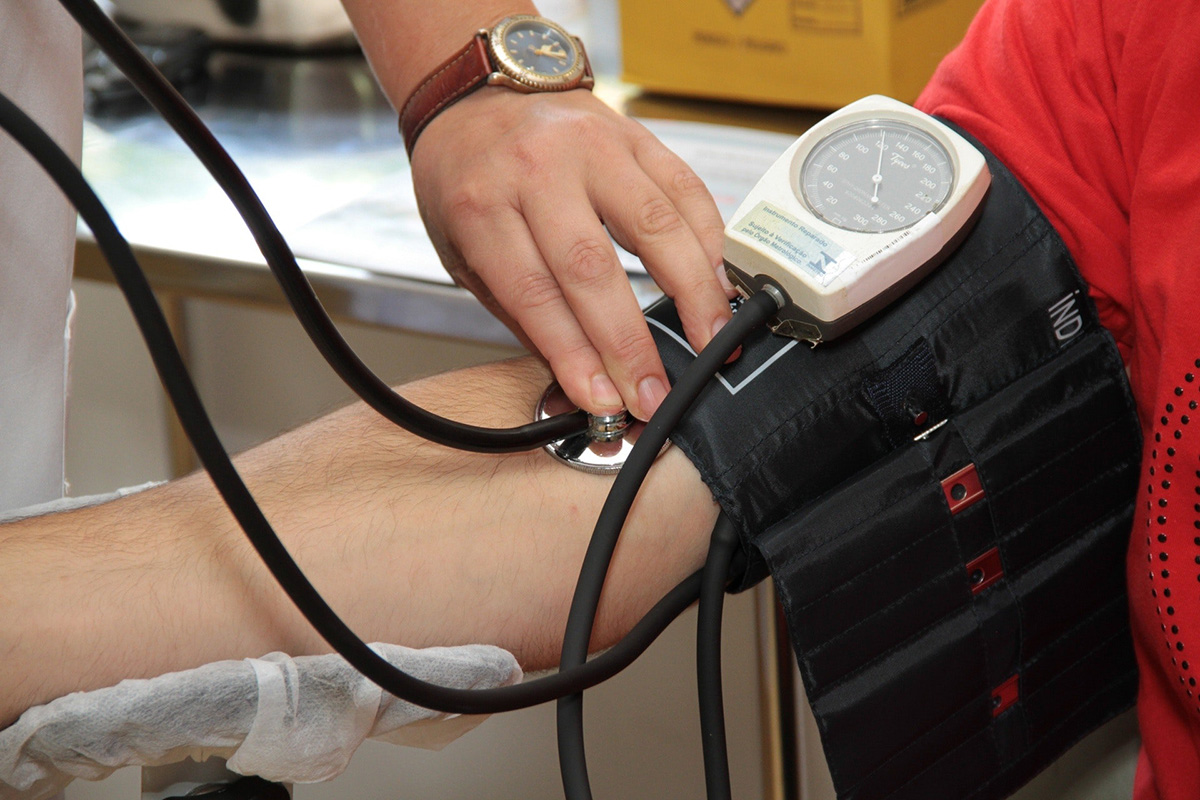Lower High Blood Pressure: 5 Ways

Let’s cover five ways you can lower high blood pressure through dietary changes.
1. Increase your intake of fruits and vegetables
The DASH (Dietary Approaches to Stop Hypertension) diet is a very effective meal plan to lower blood pressure. The diet is high in fruits and vegetables, including 4-5 vegetable servings and 4-5 fruit servings everyday.
Fruits and vegetables are rich sources of fiber and phytonutrients essential to heart health and promotion of a lower blood pressure. The more the better!
2. Decrease sodium intake
Are you young, active, consuming a healthy diet, AND still diagnosed with high blood pressure?
I’ve been receiving several questions related to this recently, so wanted to address it. Here’s an example of a question:
I am and always have been thin. I do not smoke, do not drink alcohol, eat a very healthy diet high in fruits/vegetables and low in processed foods, exercise daily, and get plenty of rest. I have been diagnosed with high blood pressure. What do I do?
In this situation the standard steps you need to take to lower high blood pressure do not necessarily apply. That doesn’t mean be lazy, don’t exercise, and eat a high fat diet. That means you need to work with your physician for a full evaluation/lab work to determine the cause of your high blood pressure, since you do not have the typical causes of high blood pressure (overweight, poor diet, etc.). Once this is known you’ll be able to outline a plan of action appropriate for your situation.
All the best,
Lisa Nelson RD
7 Natural Ways to Lower High Blood Pressure
http://lowerbloodpressurewithlisa.com
6 Habits to Lower High Blood Pressure
The second Nurses Health Study has identified six dietary habits that reduce high blood pressure in women by almost 80%.
The Nurses Health Study includes 83,882 adult women between the ages of 27 to 44 years-old. Researchers analyzed data to determine if there was a connection between a healthy lifestyle and high blood pressure prevention.
Here are the six diet and lifestyle factors researchers identified to decrease high blood pressure risk in women.
Lower Blood Pressure – Answers to 4 Frequently Asked Blood Pressure Questions
High blood pressure is a serious condition that requires treatment. Here are answers to five frequently asked questions you need to know.
What is high blood pressure?
Blood pressure equals the force pushing against your artery walls when your heart beats and when it rests. The systolic pressure is the force against artery walls when your heart beats (contracts), while the diastolic pressure is the pressure against your artery walls when the heart relaxes (between beats).
Lower High Blood Pressure – Sea salt versus Table Salt
I frequently speak to people that have the misconception sea salt is better for your heart health than regular table salt. From a chemical and nutritional standpoint, both are sodium chloride and you want to limit your sodium intake to 2300 mg (~1 tsp of table salt) or less to promote blood pressure control.
If you use kosher salt, which has larger crystals, you benefit because less salt “fits” in one teaspoon due to the larger crystal size. A teaspoon of kosher salt provides about 1900 mg sodium. Sea salt is available in this larger crystal form, also.
All the best,
Lisa Nelson, RD, LN
The Heart of Health



